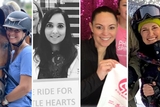
Each March, we celebrate National Women’s History Month, recognizing inspirational and groundbreaking women who have forged a path through history for their female successors.
Though the medical field has come a long way since Dr. Elizabeth Blackwell made history as the first woman in America to receive a medical degree, medicine largely remains a male-dominated field and gender discrimination persists.
In honor of Women’s History Month, the Cardiac Center invites you to meet a few members of our talented team — inspiring women across multiple subspecialities sharing their history, their accomplishments and their insights on women in the medical field.
Stephanie Fuller, MD
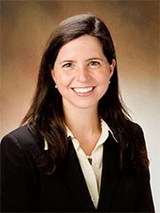
Attending Surgeon, Division of Cardiothoracic Surgery
Q: Who or what inspired you to pursue a career in medicine?
A: For many of us, the pursuit of medicine is a very altruistic decision. There is so much appeal in the ability to care for someone. It serves a very humanistic and emotional side of my being.
Q: What do you love most about your job?
A: There is a profound sense of accomplishment from a job well done. I also love communicating with patients and their families. Effective communication allows us to take a potentially terrifying situation and make it a little easier.
Q: What professional accomplishment are you most proud of?
A: Being awarded the Thomas L. Spray Endowed Chair in Pediatric Cardiothoracic Surgery. Dr. Spray is my mentor, and this was a tremendous honor.
Q: How important has female mentorship been to your career?
A: Approximately 5% of practicing cardiothoracic surgeons are female so I did not have many female mentors. The women I met or had the opportunity to learn from had a profound impact and were incredibly inspiring. I hope to do the same for young women interested in a career in surgery. I was also extraordinarily fortunate to have male mentors who helped me achieve my career goals, and I am eternally grateful.
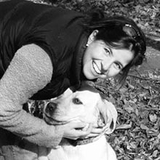
Q: Although the gender gap has shrunk in the medical field, we still have more work to do. What obstacles do you feel female clinicians face and how can society promote increased female leadership in the field?
A: Gender discrimination is real, and a tremendous amount of bias from leaders, colleagues and even patients exists across all surgical subspecialties. The first solution is to acknowledge the problem. Secondly, action speaks louder than words. We need to focus on the very intentional mentorship and sponsorship of young women and minorities. I feel particularly strongly about this when it comes to "underprivileged" but very driven individuals who are not in the fortunate position to have opportunities readily available to them. We must create these opportunities and give all motivated and talented students the tools and resources they need to succeed. Lastly, we need to be able to track our methods and define measures of success so that we understand how to better promote and retain individuals who merit our time and bring value, irrespective of sex, race or ethnicity.
Q: What advice do you have for young women interested in pursuing a career in medicine?
A: Call me! I’m kidding, but not really. The best advice I can offer is to prepare yourselves by studying and reading about what it takes to succeed. Not only does it require a good mentor, but you must be a good mentee. There is a lot of very helpful literature out there that can serve you well. Next, find a mentor with whom you share interests (either clinical or research) AND who is truly invested in helping you to achieve your goals.
Maryam Y. Naim, MD, MSCE
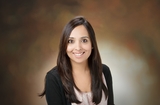
Pediatric Cardiac Intensivist, Division of Cardiac Critical Care Medicine
Pronouns: she/hers
Q: Who or what inspired you to pursue a career in medicine?
A: I actually didn’t want to pursue a career in medicine at first. I was going to become an environmental engineer or conservationist, but my mother really thought I should go to medical school. Luckily, I really started loving medicine once I began caring for patients.
Q: What do you love most about your job?
A: I love being part of a team of highly skilled professionals, and I love our patients and families.
Q: What professional accomplishment are you most proud of?
A: I am also a researcher and clinician-scientist. I am most proud of my research in bystander CPR in pediatric out-of-hospital cardiac arrest and on racial disparities related to social determinants of health.
Q: How important has female mentorship been to your career?
A: I have had incredible clinical and research mentors throughout my career. These women include my mentors from residency: Dr. Ann Reed who is currently the Chair and Professor of the Department of Pediatrics at Duke and Dr. Stephanie Starr who is a pediatrician and Associate Professor at the Mayo Clinic. My mentors from fellowship and my early career include Dr. Chitra Ravishankar, a Cardiologist and Professor of Pediatrics at CHOP, and Dr. Sarah Tabbutt, a cardiac intensivist and Professor of Pediatrics at UCSF, both of whom encouraged me to become a cardiac intensivist. These four women have been influential in encouraging me to aim high and to aim for it all: to be an astute clinician, a motivated researcher and an encouraging teacher.
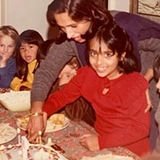
Q: Although the gender gap has shrunk in the medical field, we still have more work to do. What obstacles do you feel female clinicians face and how can society promote increased female leadership in the field?
A: Gender inequity is real and still exists in medicine. If you look at division and department chairs at academic institutions across the country, the majority of these positions are occupied by men. These men typically mentor other men who are like them (look like/talk like/have similar interests) to be leaders who eventually replace them. I’m not sure whether this is intentional or a form of unconscious bias. Women are often overlooked because of the misconception that they have competing responsibilities with life at home, or a lack of strength or leadership skills. Usually, however, they are equally or more accomplished, skilled and successful compared to their male counterparts but are never given the opportunity for leadership. Diverse teams are smarter and more successful. Women should be always be considered for leadership positions.
Q: What advice do you have for young women interested in pursuing a career in medicine?
A: I would say pursue what you love. I was once told by someone I respect that I shouldn’t pursue the life of a cardiac intensivist because I wouldn’t be happy, wouldn’t be clinician-scientist and wouldn’t have kids. I am glad that I didn’t heed this advice because I am happy and have been able to achieve my career and personal goals (including a loving partner, sweet daughter and adorable puppy)!
Sherri Kubis, RN, MSN, CCRN
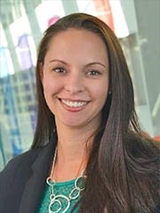
Director of Cardiac Nursing
Q: Who or what inspired you to pursue a career in medicine?
A: From a young age, I knew I wanted to be in healthcare, learning about medicine and helping others. During my first job as a unit clerk, I had the opportunity to witness the amount of direct support nurses provide to their patients and families while at their bedside 24 hours each day. It was the compassion, expertise and dedication of these nurses that inspired me to focus my career on nursing so that I could ensure each patient I interacted with had the best experience possible — not just the right diagnosis and treatment.
Q: What do you love most about your job?
A: As an administrator, I love being able to influence the systems that support teams to work to the best of their abilities and deliver the best care possible to our patients and families.
Q: What professional accomplishment are you most proud of?
A: I am most proud of leading an effort to grow the size of our ICU. It took a lot of planning and advocacy to make sure all the resources and timing were appropriate to continue delivering the right care to the increasing number of kids who needed it.
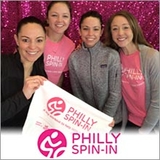
Q: How important has female mentorship been to your career?
A: Female mentorship was the catalyst that not only helped me find the right career path, but also helped me develop as a nurse and as a leader within my organization and within the industry. This mentorship is also what sustained me when life presented challenges that made me question whether or not I could really accomplish my dreams.
Q: Although the gender gap has shrunk in the medical field, we still have more work to do. What obstacles do you feel female clinicians face and how can society promote increased female leadership in the field?
A: I think organizations need to proactively focus on establishing women in leadership roles across all departments. This will lead by example and support leadership skill development for up-and-coming female professionals.
Q: What advice do you have for young women interested in pursuing a career in medicine?
A: Follow your heart and know that you are capable of anything. Do not back down even though the path may be challenging, as your success will help ease the path for women in the future.
Meryl Cohen, MD
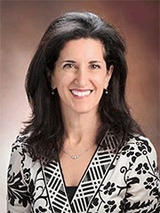
Board-certified Cardiologist
Q: Who or what inspired you to pursue a career in medicine?
A: I knew pretty early in my life that medicine was the path for me. I loved science in high school and that persisted into college, so I knew I would go into healthcare. Medicine seemed like a great option because there are so many different paths you can take.
Q: What do you love most about your job?
A: I love many aspects of my job, including teaching our trainees, advocating for my patients, interpreting and performing echocardiograms in all clinical settings and working with my colleagues.
Q: What professional accomplishment are you most proud of?
A: I am not sure there is just one. Some of my proudest moments are watching our former trainees go on to establish impressive careers here at CHOP and at other institutions. I love knowing that I played a small role in their success.
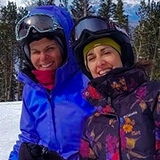
Q: How important has female mentorship been to your career?
A: Female mentorship has been a very important part of my career. During my training, I was fortunate enough to come in contact with many strong women role models who helped forge the path for others, including Jane Newburger, Rica Arnon, and CHOP cardiologists Victoria Vetter and Marie Gleason. Watching them navigate their careers along with managing a home life was very important to my development as a cardiologist.
Q: Although the gender gap has shrunk in the medical field, we still have more work to do. What obstacles do you feel female clinicians face and how can society promote increased female leadership in the field?
A: The gender gap has revealed itself quite obviously during the COVID-19 pandemic. Women healthcare workers have often taken on the majority of home issues as their children are home-schooled or sick family members are cared for. The gender roles that lead to the gender gap are still present. More support for women workers at local, state and federal levels would help, but also roles should be more equally distributed in households. This already happens in some households of course, but not in all.
Q: What advice do you have for young women interested in pursuing a career in medicine?
A: The majority of medical students now are women, so I am not sure we need to coax anyone into the field. I would offer that women should pursue any field, and it would be great to have more representation in male-dominated fields, such as surgery and adult cardiology. These subspecialties need changed attitudes about work/life balance in order to entice women. All fields benefit from diversity in their faculty.
Featured in this article
Specialties & Programs
Each March, we celebrate National Women’s History Month, recognizing inspirational and groundbreaking women who have forged a path through history for their female successors.
Though the medical field has come a long way since Dr. Elizabeth Blackwell made history as the first woman in America to receive a medical degree, medicine largely remains a male-dominated field and gender discrimination persists.
In honor of Women’s History Month, the Cardiac Center invites you to meet a few members of our talented team — inspiring women across multiple subspecialities sharing their history, their accomplishments and their insights on women in the medical field.
Stephanie Fuller, MD

Attending Surgeon, Division of Cardiothoracic Surgery
Q: Who or what inspired you to pursue a career in medicine?
A: For many of us, the pursuit of medicine is a very altruistic decision. There is so much appeal in the ability to care for someone. It serves a very humanistic and emotional side of my being.
Q: What do you love most about your job?
A: There is a profound sense of accomplishment from a job well done. I also love communicating with patients and their families. Effective communication allows us to take a potentially terrifying situation and make it a little easier.
Q: What professional accomplishment are you most proud of?
A: Being awarded the Thomas L. Spray Endowed Chair in Pediatric Cardiothoracic Surgery. Dr. Spray is my mentor, and this was a tremendous honor.
Q: How important has female mentorship been to your career?
A: Approximately 5% of practicing cardiothoracic surgeons are female so I did not have many female mentors. The women I met or had the opportunity to learn from had a profound impact and were incredibly inspiring. I hope to do the same for young women interested in a career in surgery. I was also extraordinarily fortunate to have male mentors who helped me achieve my career goals, and I am eternally grateful.

Q: Although the gender gap has shrunk in the medical field, we still have more work to do. What obstacles do you feel female clinicians face and how can society promote increased female leadership in the field?
A: Gender discrimination is real, and a tremendous amount of bias from leaders, colleagues and even patients exists across all surgical subspecialties. The first solution is to acknowledge the problem. Secondly, action speaks louder than words. We need to focus on the very intentional mentorship and sponsorship of young women and minorities. I feel particularly strongly about this when it comes to "underprivileged" but very driven individuals who are not in the fortunate position to have opportunities readily available to them. We must create these opportunities and give all motivated and talented students the tools and resources they need to succeed. Lastly, we need to be able to track our methods and define measures of success so that we understand how to better promote and retain individuals who merit our time and bring value, irrespective of sex, race or ethnicity.
Q: What advice do you have for young women interested in pursuing a career in medicine?
A: Call me! I’m kidding, but not really. The best advice I can offer is to prepare yourselves by studying and reading about what it takes to succeed. Not only does it require a good mentor, but you must be a good mentee. There is a lot of very helpful literature out there that can serve you well. Next, find a mentor with whom you share interests (either clinical or research) AND who is truly invested in helping you to achieve your goals.
Maryam Y. Naim, MD, MSCE

Pediatric Cardiac Intensivist, Division of Cardiac Critical Care Medicine
Pronouns: she/hers
Q: Who or what inspired you to pursue a career in medicine?
A: I actually didn’t want to pursue a career in medicine at first. I was going to become an environmental engineer or conservationist, but my mother really thought I should go to medical school. Luckily, I really started loving medicine once I began caring for patients.
Q: What do you love most about your job?
A: I love being part of a team of highly skilled professionals, and I love our patients and families.
Q: What professional accomplishment are you most proud of?
A: I am also a researcher and clinician-scientist. I am most proud of my research in bystander CPR in pediatric out-of-hospital cardiac arrest and on racial disparities related to social determinants of health.
Q: How important has female mentorship been to your career?
A: I have had incredible clinical and research mentors throughout my career. These women include my mentors from residency: Dr. Ann Reed who is currently the Chair and Professor of the Department of Pediatrics at Duke and Dr. Stephanie Starr who is a pediatrician and Associate Professor at the Mayo Clinic. My mentors from fellowship and my early career include Dr. Chitra Ravishankar, a Cardiologist and Professor of Pediatrics at CHOP, and Dr. Sarah Tabbutt, a cardiac intensivist and Professor of Pediatrics at UCSF, both of whom encouraged me to become a cardiac intensivist. These four women have been influential in encouraging me to aim high and to aim for it all: to be an astute clinician, a motivated researcher and an encouraging teacher.

Q: Although the gender gap has shrunk in the medical field, we still have more work to do. What obstacles do you feel female clinicians face and how can society promote increased female leadership in the field?
A: Gender inequity is real and still exists in medicine. If you look at division and department chairs at academic institutions across the country, the majority of these positions are occupied by men. These men typically mentor other men who are like them (look like/talk like/have similar interests) to be leaders who eventually replace them. I’m not sure whether this is intentional or a form of unconscious bias. Women are often overlooked because of the misconception that they have competing responsibilities with life at home, or a lack of strength or leadership skills. Usually, however, they are equally or more accomplished, skilled and successful compared to their male counterparts but are never given the opportunity for leadership. Diverse teams are smarter and more successful. Women should be always be considered for leadership positions.
Q: What advice do you have for young women interested in pursuing a career in medicine?
A: I would say pursue what you love. I was once told by someone I respect that I shouldn’t pursue the life of a cardiac intensivist because I wouldn’t be happy, wouldn’t be clinician-scientist and wouldn’t have kids. I am glad that I didn’t heed this advice because I am happy and have been able to achieve my career and personal goals (including a loving partner, sweet daughter and adorable puppy)!
Sherri Kubis, RN, MSN, CCRN

Director of Cardiac Nursing
Q: Who or what inspired you to pursue a career in medicine?
A: From a young age, I knew I wanted to be in healthcare, learning about medicine and helping others. During my first job as a unit clerk, I had the opportunity to witness the amount of direct support nurses provide to their patients and families while at their bedside 24 hours each day. It was the compassion, expertise and dedication of these nurses that inspired me to focus my career on nursing so that I could ensure each patient I interacted with had the best experience possible — not just the right diagnosis and treatment.
Q: What do you love most about your job?
A: As an administrator, I love being able to influence the systems that support teams to work to the best of their abilities and deliver the best care possible to our patients and families.
Q: What professional accomplishment are you most proud of?
A: I am most proud of leading an effort to grow the size of our ICU. It took a lot of planning and advocacy to make sure all the resources and timing were appropriate to continue delivering the right care to the increasing number of kids who needed it.

Q: How important has female mentorship been to your career?
A: Female mentorship was the catalyst that not only helped me find the right career path, but also helped me develop as a nurse and as a leader within my organization and within the industry. This mentorship is also what sustained me when life presented challenges that made me question whether or not I could really accomplish my dreams.
Q: Although the gender gap has shrunk in the medical field, we still have more work to do. What obstacles do you feel female clinicians face and how can society promote increased female leadership in the field?
A: I think organizations need to proactively focus on establishing women in leadership roles across all departments. This will lead by example and support leadership skill development for up-and-coming female professionals.
Q: What advice do you have for young women interested in pursuing a career in medicine?
A: Follow your heart and know that you are capable of anything. Do not back down even though the path may be challenging, as your success will help ease the path for women in the future.
Meryl Cohen, MD

Board-certified Cardiologist
Q: Who or what inspired you to pursue a career in medicine?
A: I knew pretty early in my life that medicine was the path for me. I loved science in high school and that persisted into college, so I knew I would go into healthcare. Medicine seemed like a great option because there are so many different paths you can take.
Q: What do you love most about your job?
A: I love many aspects of my job, including teaching our trainees, advocating for my patients, interpreting and performing echocardiograms in all clinical settings and working with my colleagues.
Q: What professional accomplishment are you most proud of?
A: I am not sure there is just one. Some of my proudest moments are watching our former trainees go on to establish impressive careers here at CHOP and at other institutions. I love knowing that I played a small role in their success.

Q: How important has female mentorship been to your career?
A: Female mentorship has been a very important part of my career. During my training, I was fortunate enough to come in contact with many strong women role models who helped forge the path for others, including Jane Newburger, Rica Arnon, and CHOP cardiologists Victoria Vetter and Marie Gleason. Watching them navigate their careers along with managing a home life was very important to my development as a cardiologist.
Q: Although the gender gap has shrunk in the medical field, we still have more work to do. What obstacles do you feel female clinicians face and how can society promote increased female leadership in the field?
A: The gender gap has revealed itself quite obviously during the COVID-19 pandemic. Women healthcare workers have often taken on the majority of home issues as their children are home-schooled or sick family members are cared for. The gender roles that lead to the gender gap are still present. More support for women workers at local, state and federal levels would help, but also roles should be more equally distributed in households. This already happens in some households of course, but not in all.
Q: What advice do you have for young women interested in pursuing a career in medicine?
A: The majority of medical students now are women, so I am not sure we need to coax anyone into the field. I would offer that women should pursue any field, and it would be great to have more representation in male-dominated fields, such as surgery and adult cardiology. These subspecialties need changed attitudes about work/life balance in order to entice women. All fields benefit from diversity in their faculty.
Contact us
Cardiac Center